Found: Maria Arbuzowa’s
family in Ukraine
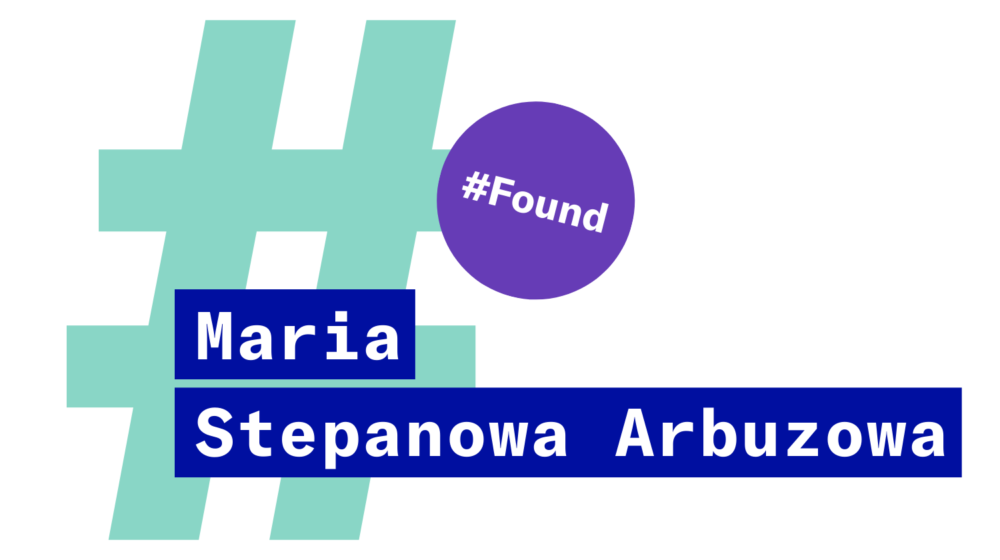
Anita Pröpper was born in the Rhineland area of Germany in 1944. Her mother, a Ukrainian forced laborer, lost sight of her daughter a few months after she was born and returned home without her at the end of the war. Anita grew up in a German foster family. She never found her parents although she searched for them all her life. Today, Anita’s children are searching for their grandmother Maria from Luhansk, and they have asked us to help them. But the war is making it difficult to carry out research in eastern Ukraine. Can anyone help us?
“I didn’t realize before how much forced labor there was under National Socialism or how much suffering people from Eastern Europe had to endure here,” said Michael Pröpper during his visit to Bad Arolsen. He came here in June 2022 to research the fate of his mother, Anita. He and his sister had begun to search for information a few weeks earlier.
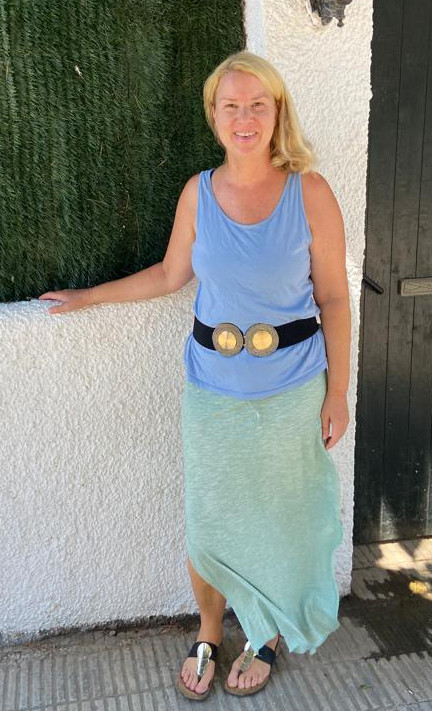
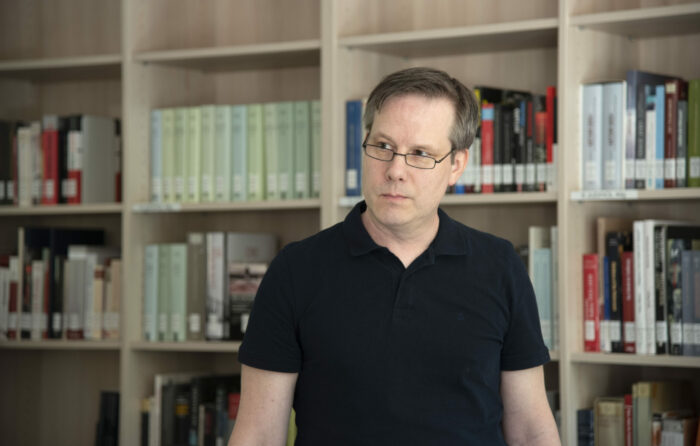
Searching for relatives
When Russia began to attack Ukraine, Michael Pröpper and his sister, Monika Kränzle, remembered that their relatives last lived in the now embattled eastern regions of Ukraine: “We wondered how they were doing and if we could get in touch with them. So we looked into our mother’s family history in detail for the very first time.”
Deported from Mariupol
The two siblings are mainly looking for relatives of their grandmother Maria Arbuzowa (née Petrowa), who was 18 years old in 1942, when she was deported to Germany from near Mariupol in Ukraine. She had to do forced labor in Wuppertal. While she was there, she met a young forced laborer called Wladimir Kowalew from Kharkiv (Ukraine). The two were allowed to marry, and in the summer of 1944, Maria gave birth to their daughter Viktoria – Michael Pröpper and Monika Kränzle’s mother.
Tracing inquiry submitted to the Arolsen Archives
Reading the files of the Arolsen Archives to find out why Viktoria grew up in Germany as “Anita” and what happened to her biological parents is “like reading a whodunit,” says her son. Because both women – Viktoria/Anita and her mother Maria – tried to find each other later by contacting the International Tracing Service (now the Arolsen Archives). Anita submitted an inquiry in 1980, providing all the information she had about her background:
»I was found in a Russian camp in Düsseldorf-Eller in March 1945. It was difficult to estimate my date of birth because I was so undernourished. According to the information available to me, I had a label with the name Viktoria Orlowa written on it.«
Anita Pröpper (inquiry submitted to the Arolsen Archives in 1980)
Taken in by a German foster family
Anita thought that she was the daughter of a Russian forced laborer. According to the information she had, a labor assignment on the other side of the Rhine and a blown up bridge had made it impossible for her mother to get to her in the chaos of the war. So she ended up living with a German foster family who managed to “make a healthy person out of me by giving me their devoted care.” The large family she was sent to in Düsseldorf took in a number of children who had no parents after the war and brought them up. They were the ones who gave Viktoria her additional first name “Anita.”
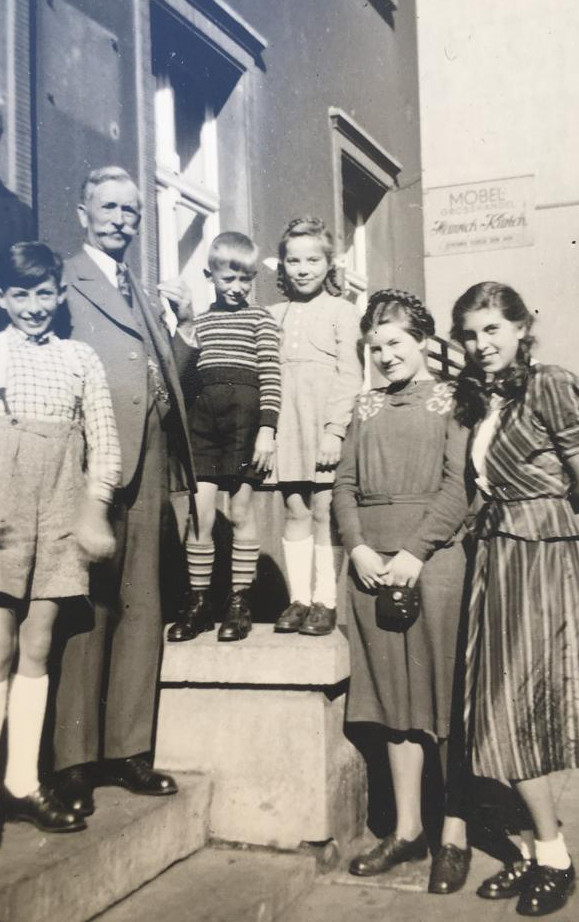
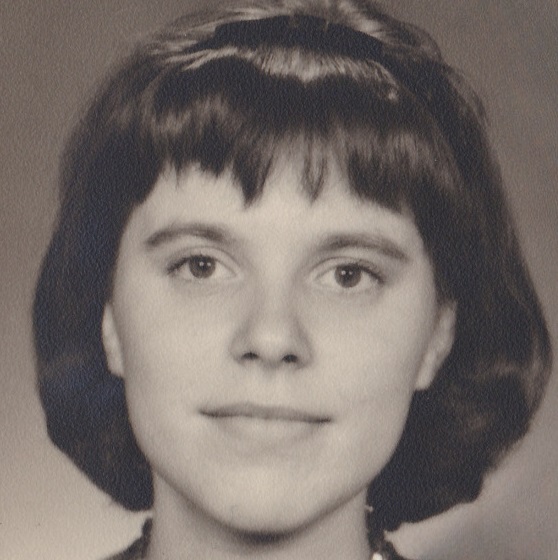
Anita tried to find parents
Anita always had a good relationship with her foster parents. Once she was an adult, they helped her to obtain German citizenship. However, in her inquiry to the Arolsen Archives, she also described how – even as a teenager – she had made repeated attempts to find her real parents.
A child tracing file at the Arolsen Archives
Our archives contain a child tracing file for Viktoria Orlowa opened in 1946/1947 because she was found without parents after the war. But the search was unsuccessful because there were not enough leads. The Arolsen Archives were unable to answer the inquiry Anita submitted in 1980 for the same reason. Unfortunately, she died just three years later, without managing to find her parents.
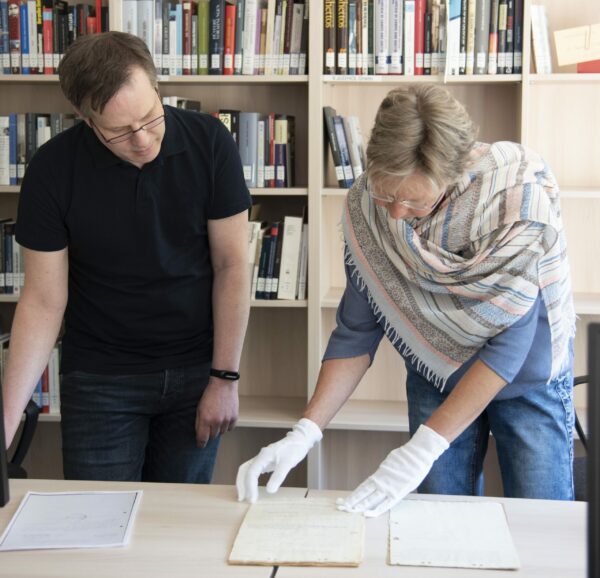
Monika Leithäuser (right) works in our Tracing department. She is showing Michael Pröpper the historical documents from the child tracing file that was opened for his mother immediately after the war.
The family’s fate is clarified
It was not until 1996 that our Tracing Department was able to clarify the family’s fate, when Anita’s birth mother, Maria, contacted the Arolsen Archives, wanting to find her daughter. She also explained why Viktoria’s last name was “Orlowa” and not “Kowalew” like her parents’: Maria and Wladimir had tried to escape from Wuppertal when Maria was pregnant with Viktoria. They did not get far and were arrested “in a small town” whose name Maria could not remember. To make it impossible for them to be traced back to Wuppertal, they gave themselves the surname “Orlowa.”
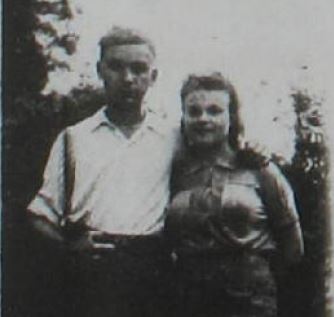
Maria and Wladimir: Maria sent this copy of an old photo to the Arolsen Archives.
Maria returned to Ukraine without her daughter
Maria had to work in a nearby textile factory, where Viktoria was born. Months later, Wladimir took the two of them to the hospital, because Maria was ill and could no longer breastfeed the baby. Maria was soon discharged and had to go back to work. Viktoria stayed in the hospital, where Wladimir visited her regularly – until the hospital had to be evacuated because of a bomb attack. Maria and Wladimir never found Viktoria again, as they had little time left to search. Like most Soviet forced laborers, they were taken back to Russia via Poland at the end of the war. Vladimir died on the way, while Maria returned to Ukraine, her home country.
Maria had to forget Viktoria
When Maria’s grandson Michael Pröpper saw the first copies of documents from her file, he found it strange that she had waited so long before submitting an inquiry – she was 72 years old at the time. Monika Leithäuser from the Tracing department at the Arolsen Archives provided some background information: “On returning to the Soviet Union, forced laborers were seen as traitors and were observed and persecuted by the authorities there. If they had had children in the West and had left them behind, they had to keep their existence secret and forget about them. Not until the collapse of the Soviet Union did it become possible to start searching again.” In one of her letters, Maria put it like this:
»Now, 50 years later, I can start my search all over again. Only now can I speak and write openly about my daughter.«
Maria Arbuzowa (inquiry submitted to the Arolsen Archives in 1996)
The search in Ukraine: Does anyone know the Arbuzows?
The Arolsen Archives managed to locate Anita’s family in 1998, using the information contained in Maria’s inquiry. Anita’s husband sent photos of his wife as a child to the Arolsen Archives in 2000, but he did not have any direct contact with Maria. His son and daughter want to make up for that now – even if they can probably only track down their grandmother’s descendants, since Maria herself would be 98 years old now. She married again in Ukraine, took the name “Arbuzowa,” and had a son (and possibly other children, too). She wanted to travel to Germany with him – Vitaly Abramovich Arbuzow, in order to find her lost daughter and her family.
Found!
Dedicated volunteers from our social media community helped the Pröpper family locate their Ukrainian relatives in September 2022. Maria has already passed away, but her four grandchildren living in Germany, Ukraine, Spain, and Turkey, are now in contact with each other. They have exchanged photos and have already discovered many things they have in common. Maria’s son Vitaly still lives in Ukraine and is overjoyed that the children of his lost half-sister have made contact. Together with his mother, he had been searching for Viktoria (Anita Pröpper) for years, and even named his daughter after her.

